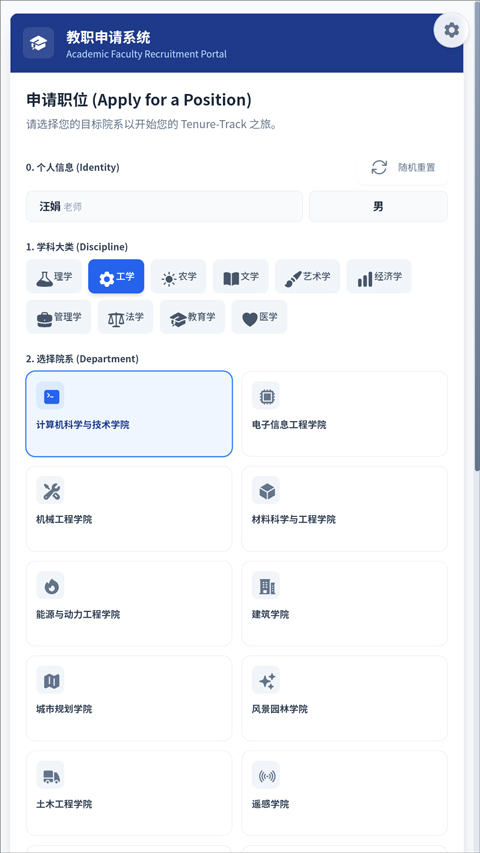Python Library Reference——urllib
时间:2006-09-09 来源:linxh
urllib -- Open arbitrary resources by URL
This module provides a high-level interface for fetching data across the World Wide Web. In particular, the urlopen() function is similar to the built-in function open(), but accepts Universal Resource Locators (URLs) instead of filenames. Some restrictions apply -- it can only open URLs for reading, and no seek operations are available.
It defines the following public functions:
| urlopen( | url[, data[, proxies]]) |
Except for the info() and geturl() methods, these methods have the same interface as for file objects -- see section 2.3.9 in this manual. (It is not a built-in file object, however, so it can't be used at those few places where a true built-in file object is required.)
The info() method returns an instance of the class mimetools.Message containing meta-information associated with the URL. When the method is HTTP, these headers are those returned by the server at the head of the retrieved HTML page (including Content-Length and Content-Type). When the method is FTP, a Content-Length header will be present if (as is now usual) the server passed back a file length in response to the FTP retrieval request. A Content-Type header will be present if the MIME type can be guessed. When the method is local-file, returned headers will include a Date representing the file's last-modified time, a Content-Length giving file size, and a Content-Type containing a guess at the file's type. See also the description of the mimetools module.
The geturl() method returns the real URL of the page. In some cases, the HTTP server redirects a client to another URL. The urlopen() function handles this transparently, but in some cases the caller needs to know which URL the client was redirected to. The geturl() method can be used to get at this redirected URL.
If the url uses the http: scheme identifier, the optional data argument may be given to specify a POST request (normally the request type is GET). The data argument must be in standard application/x-www-form-urlencoded format; see the urlencode() function below.
The urlopen() function works transparently with proxies which do not require authentication. In a Unix or Windows environment, set the http_proxy, ftp_proxy or gopher_proxy environment variables to a URL that identifies the proxy server before starting the Python interpreter. For example (the "%" is the command prompt):
% http_proxy="http://www.someproxy.com:3128" % export http_proxy % python ...
In a Windows environment, if no proxy environment variables are set, proxy settings are obtained from the registry's Internet Settings section.
In a Macintosh environment, urlopen() will retrieve proxy information from Internet Config.
Alternatively, the optional proxies argument may be used to explicitly specify proxies. It must be a dictionary mapping scheme names to proxy URLs, where an empty dictionary causes no proxies to be used, and None (the default value) causes environmental proxy settings to be used as discussed above. For example:
# Use http://www.someproxy.com:3128 for http proxying proxies = {'http': 'http://www.someproxy.com:3128'} filehandle = urllib.urlopen(some_url, proxies=proxies) # Don't use any proxies filehandle = urllib.urlopen(some_url, proxies={}) # Use proxies from environment - both versions are equivalent filehandle = urllib.urlopen(some_url, proxies=None) filehandle = urllib.urlopen(some_url)
The urlopen() function does not support explicit proxy specification. If you need to override environmental proxy settings, use URLopener, or a subclass such as FancyURLopener.
Proxies which require authentication for use are not currently supported; this is considered an implementation limitation.
Changed in version 2.3: Added the proxies support.
| urlretrieve( | url[, filename[, reporthook[, data]]]) |
The second argument, if present, specifies the file location to copy to (if absent, the location will be a tempfile with a generated name). The third argument, if present, is a hook function that will be called once on establishment of the network connection and once after each block read thereafter. The hook will be passed three arguments; a count of blocks transferred so far, a block size in bytes, and the total size of the file. The third argument may be -1 on older FTP servers which do not return a file size in response to a retrieval request.
If the url uses the http: scheme identifier, the optional data argument may be given to specify a POST request (normally the request type is GET). The data argument must in standard application/x-www-form-urlencoded format; see the urlencode() function below.
_urlopener The public functions urlopen() and urlretrieve() create an instance of the FancyURLopener class and use it to perform their requested actions. To override this functionality, programmers can create a subclass of URLopener or FancyURLopener, then assign an instance of that class to the urllib._urlopener variable before calling the desired function. For example, applications may want to specify a different User-Agent: header than URLopener defines. This can be accomplished with the following code:
import urllib class AppURLopener(urllib.FancyURLopener): version = "App/1.7" urllib._urlopener = AppURLopener()
| urlcleanup( | ) |
| quote( | string[, safe]) |
Example: quote('/~connolly/') yields '/%7econnolly/'.
| quote_plus( | string[, safe]) |
| unquote( | string) |
Example: unquote('/%7Econnolly/') yields '/~connolly/'.
| unquote_plus( | string) |
| urlencode( | query[, doseq]) |
| pathname2url( | path) |
| url2pathname( | path) |
| class URLopener( | [proxies[, **x509]]) |
By default, the URLopener class sends a User-Agent: header of "urllib/VVV", where VVV is the urllib version number. Applications can define their own User-Agent: header by subclassing URLopener or FancyURLopener and setting the class attribute version to an appropriate string value in the subclass definition.
The optional proxies parameter should be a dictionary mapping scheme names to proxy URLs, where an empty dictionary turns proxies off completely. Its default value is None, in which case environmental proxy settings will be used if present, as discussed in the definition of urlopen(), above.
Additional keyword parameters, collected in x509, are used for authentication with the https: scheme. The keywords key_file and cert_file are supported; both are needed to actually retrieve a resource at an https: URL.
URLopener objects will raise an IOError exception if the server returns an error code.
| class FancyURLopener( | ...) |
For all other response codes, the method http_error_default() is called which you can override in subclasses to handle the error appropriately.
Note: According to the letter of RFC 2616, 301 and 302 responses to POST requests must not be automatically redirected without confirmation by the user. In reality, browsers do allow automatic redirection of these responses, changing the POST to a GET, and urllib reproduces this behaviour.
The parameters to the constructor are the same as those for URLopener.
Note: When performing basic authentication, a FancyURLopener instance calls its prompt_user_passwd() method. The default implementation asks the users for the required information on the controlling terminal. A subclass may override this method to support more appropriate behavior if needed.
Restrictions:
- Currently, only the following protocols are supported: HTTP, (versions 0.9 and 1.0), Gopher (but not Gopher-+), FTP, and local files.
- The caching feature of urlretrieve() has been disabled until I find the time to hack proper processing of Expiration time headers.
- There should be a function to query whether a particular URL is in the cache.
- For backward compatibility, if a URL appears to point to a local file but the file can't be opened, the URL is re-interpreted using the FTP protocol. This can sometimes cause confusing error messages.
- The urlopen() and urlretrieve() functions can cause arbitrarily long delays while waiting for a network connection to be set up. This means that it is difficult to build an interactive Web client using these functions without using threads.
- The data returned by urlopen() or urlretrieve() is the raw data returned by the server. This may be binary data (e.g. an image), plain text or (for example) HTML. The HTTP protocol provides type information in the reply header, which can be inspected by looking at the Content-Type: header. For the Gopher protocol, type information is encoded in the URL; there is currently no easy way to extract it. If the returned data is HTML, you can use the module htmllib to parse it.
- The code handling the FTP protocol cannot differentiate between a file and a directory. This can lead to unexpected behavior when attempting to read a URL that points to a file that is not accessible. If the URL ends in a /, it is assumed to refer to a directory and will be handled accordingly. But if an attempt to read a file leads to a 550 error (meaning the URL cannot be found or is not accessible, often for permission reasons), then the path is treated as a directory in order to handle the case when a directory is specified by a URL but the trailing / has been left off. This can cause misleading results when you try to fetch a file whose read permissions make it inaccessible; the FTP code will try to read it, fail with a 550 error, and then perform a directory listing for the unreadable file. If fine-grained control is needed, consider using the ftplib module, subclassing FancyURLOpener, or changing _urlopener to meet your needs.
- This module does not support the use of proxies which require authentication. This may be implemented in the future.
- Although the urllib module contains (undocumented) routines to parse and unparse URL strings, the recommended interface for URL manipulation is in module urlparse.










